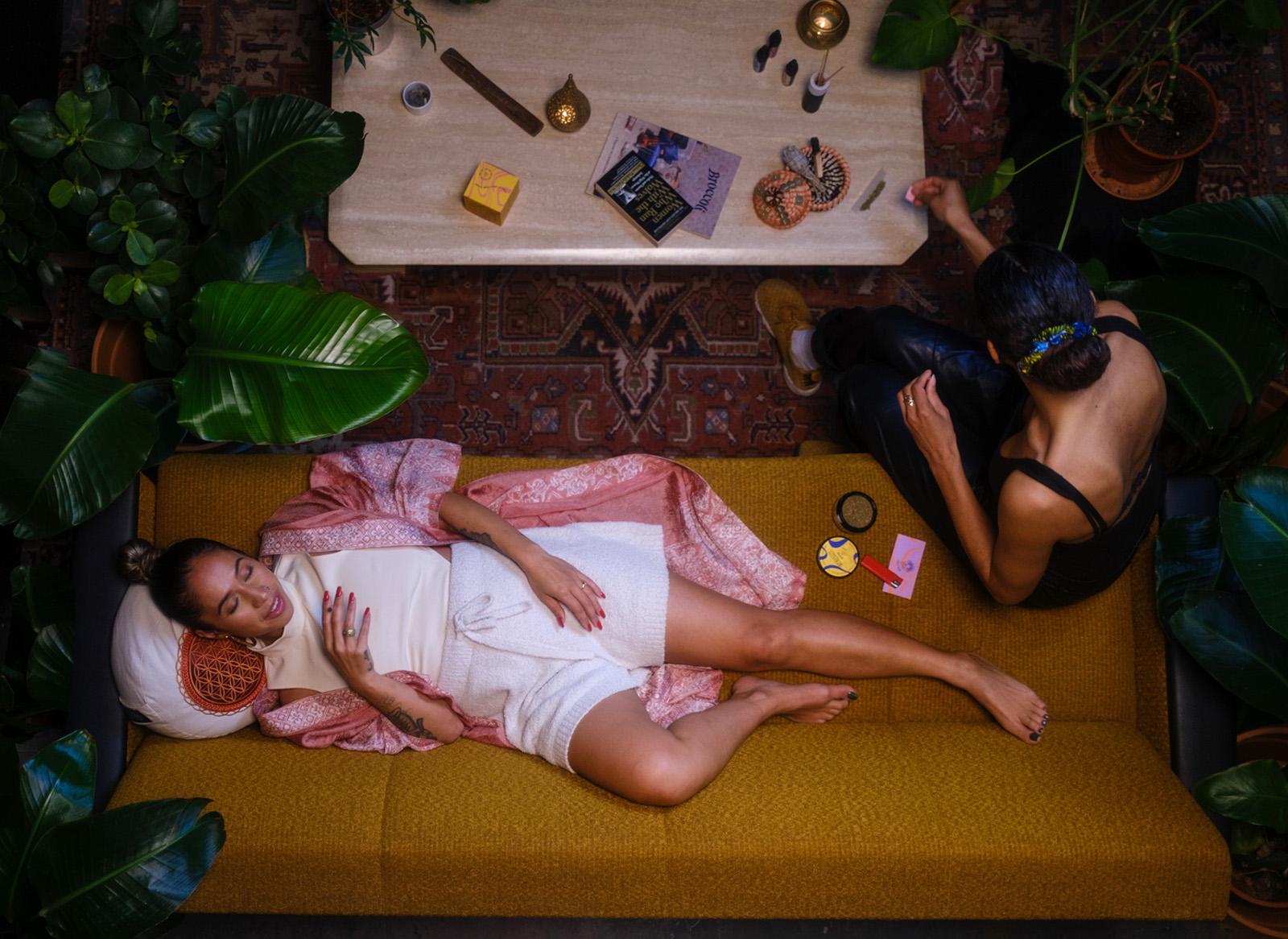Out of our deepest pain often comes our deepest mission. At least that’s how it went for Shinta Lempers (she/her). Mother of two, entrepreneur and founder of CBD wellness brand Heal Mary, Shinta made it her personal mission through self-care, conversations and stories to help normalise cannabis for women and reintroduce the plant knowledge of our ancestors. Jo-Ann Dawson (she/her) gets into plant wisdom with Shinta.
Hello Shinta. If your 12-year old self could describe you today, what would she say?
Great question, I’ll try to reflect on this without judgement. She’d say it took me a while to figure out who I am. I was always eager to self-reflect, and figure out how this world works. How to become a loving, balanced and kind person. But I learned this later in life.
My youth really defined me. I was a happy kid, easy at heart, but home wasn’t always stable. I come from a family of five. My parents lived together but my father was travelling a lot as a way to escape his mental issues. When he was home, he often had episodes which impacted all of us, especially himself.
I started writing to give all these emotions a place. I figured “when I grow up, I’m going to do what I want and make sure that the second part of my life will be gentle, warm and everything I hoped for.” Now, I’m in a phase where I’m healing and growing, while taking care of my own family. It ain’t always easy, but it has purpose and I hope I’m changing the course for mine and my childrens’ generation.
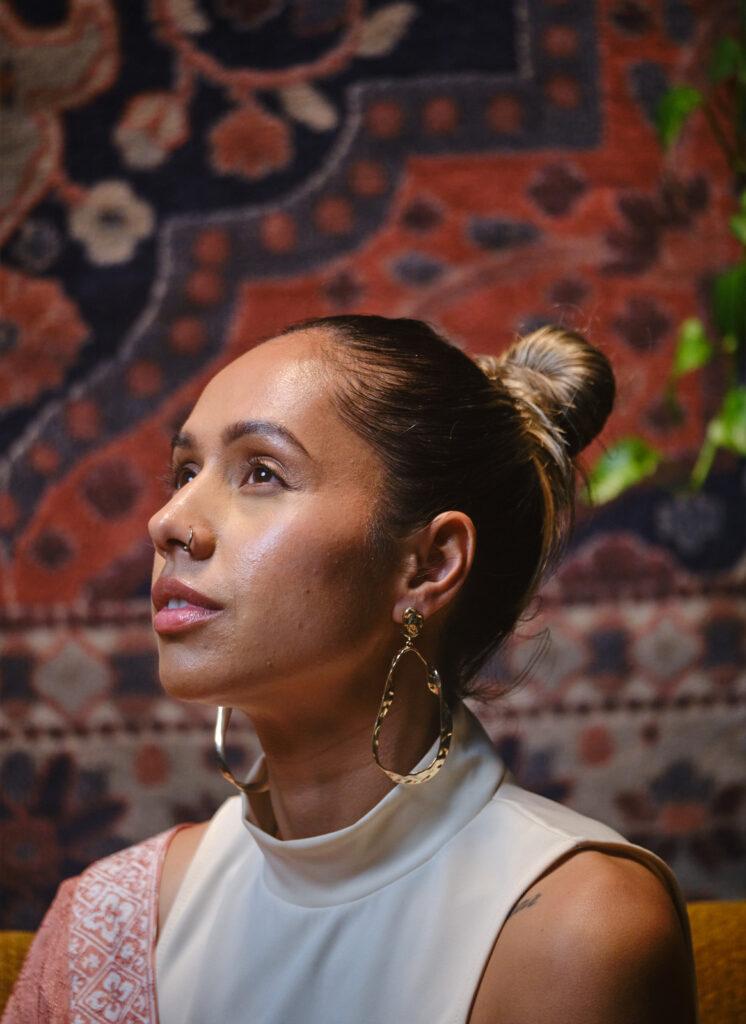
Could you walk us through the first step you took in the world of plant medicine? And what’s been the influence from your upbringing in this path?
In my twenties I dealt with chronic tension headaches for a while. Unlike my siblings and father, I wasn’t faced with mental struggles. Nevertheless, I didn’t want to wait for it to catch up to me which led me into preventative healing, researching ayurveda, plant medicines, self-healing modalities…
At the same time, I rediscovered how to use cannabis as a healing modality. Each time I’d smoke Pineapple Haze, the tension headache evaporated for about eight hours. This improved my work creatively. I worked on demanding projects and while my colleagues were stressed, overworked and ego driven, I felt I could shake that stress off more easily. Cannabis was a shortcut to creativity, compassion and softness.
Then, I tried LSD. After that the tension headaches never came back. The recent documentary ‘How to Change Your Mind’ from Michael Pollan validates the healing method. I’d known this for years but at the time reliable information was scarce.
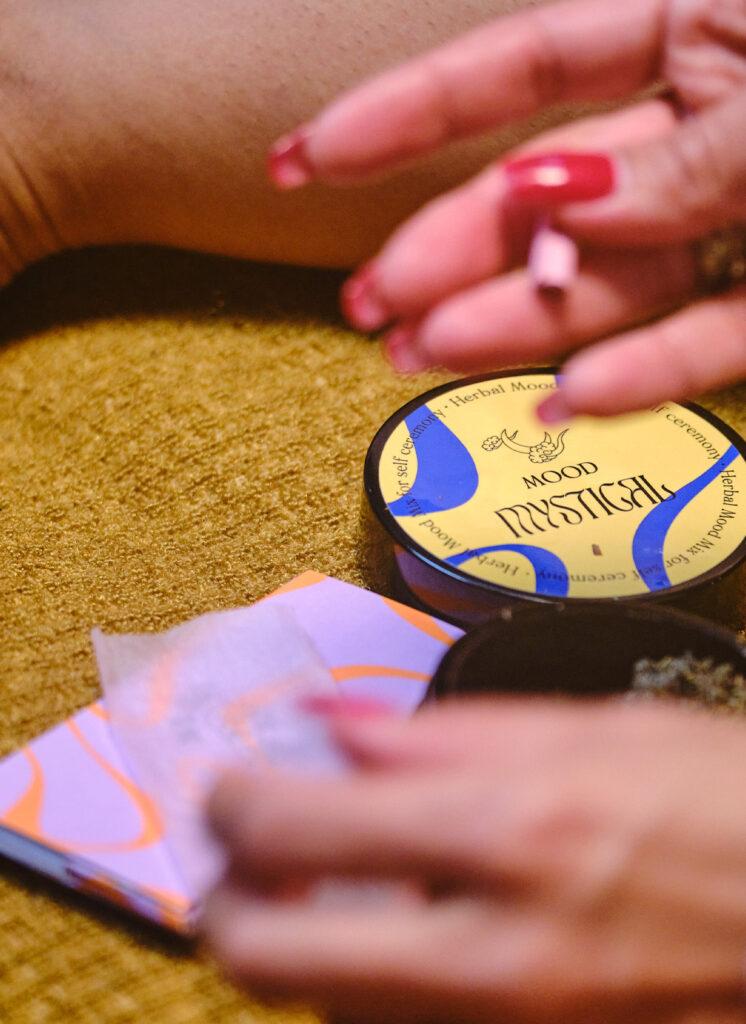
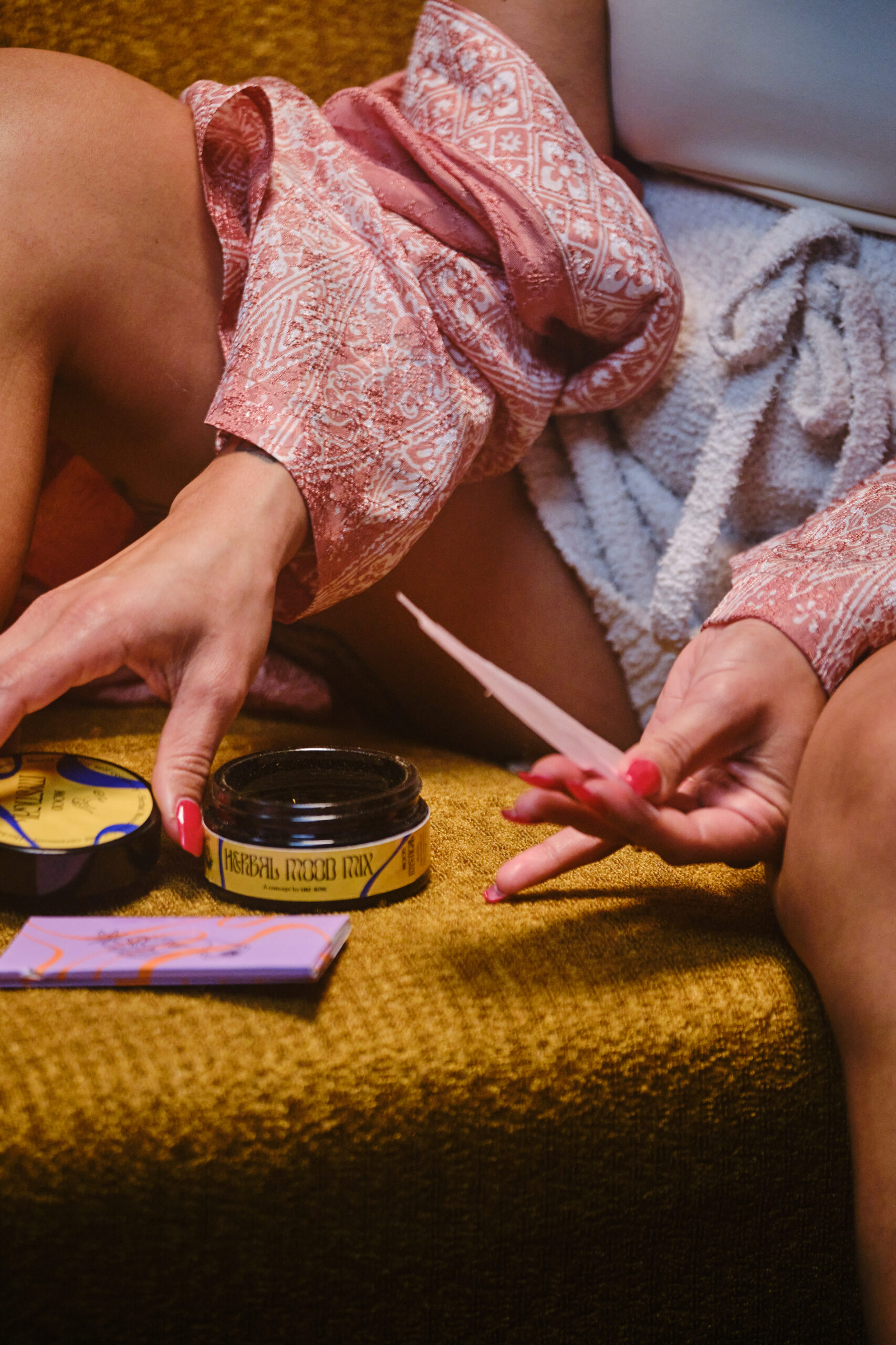
In 2020 you gave birth to your CBD wellness brand Heal Mary. What inspired Heal Mary’s creation?
At first, I was aspiring to change the narrative around cannabis and thought of rebranding and selling accessories with a softer, natural and healing look to counter the image of male-focused cannabis accessories, like papers and filters. When I wrote an article about CBD, there was a huge response. The same happens nowadays when I talk about microdosing. Lots of readers reached out to me about CBD. I had a broad network in the CBD and cannabis scene so starting a business in this field wasn’t farfetched.
My awareness grew on the exceptional role and impact cannabis has on women. An important narrative to share is how women have always used cannabis to heal themselves and others. Women steamed cannabis, made herbal medicines and used it in many ways for healing purposes long before smoking it. In Turkey, cannabis was used to ease pain during the wedding night but also to relieve PMS, menstruation cramps and heal the womb. Cannabis was practically in every woman’s toolkit from India to Africa. I think it’s time that us women see the plant in that light again.
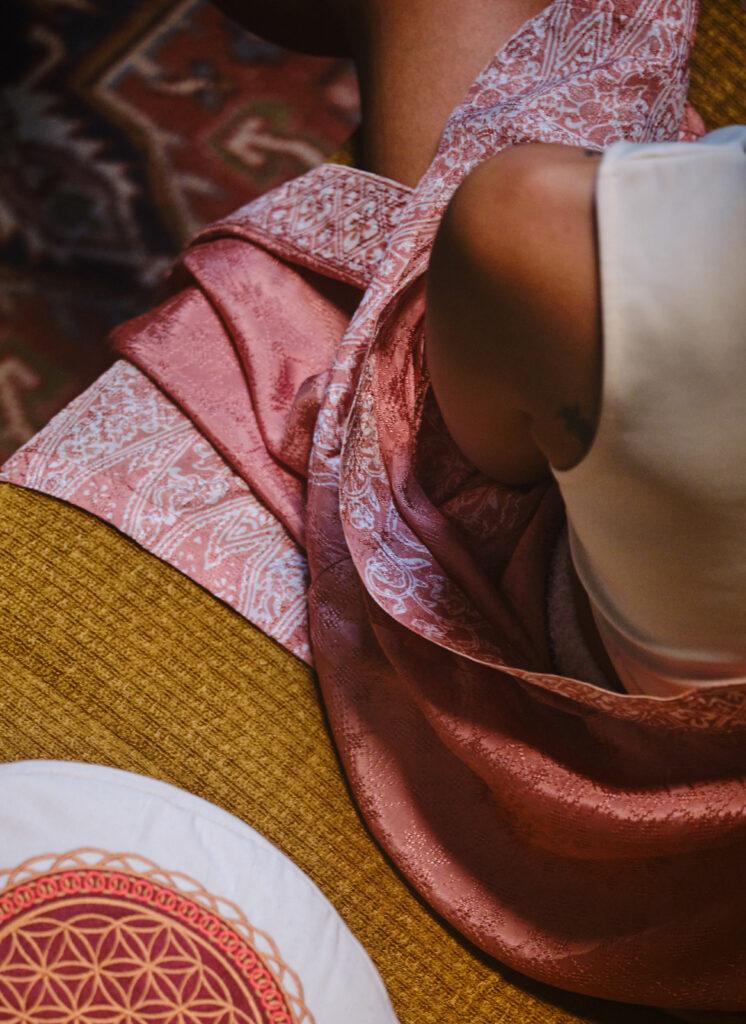
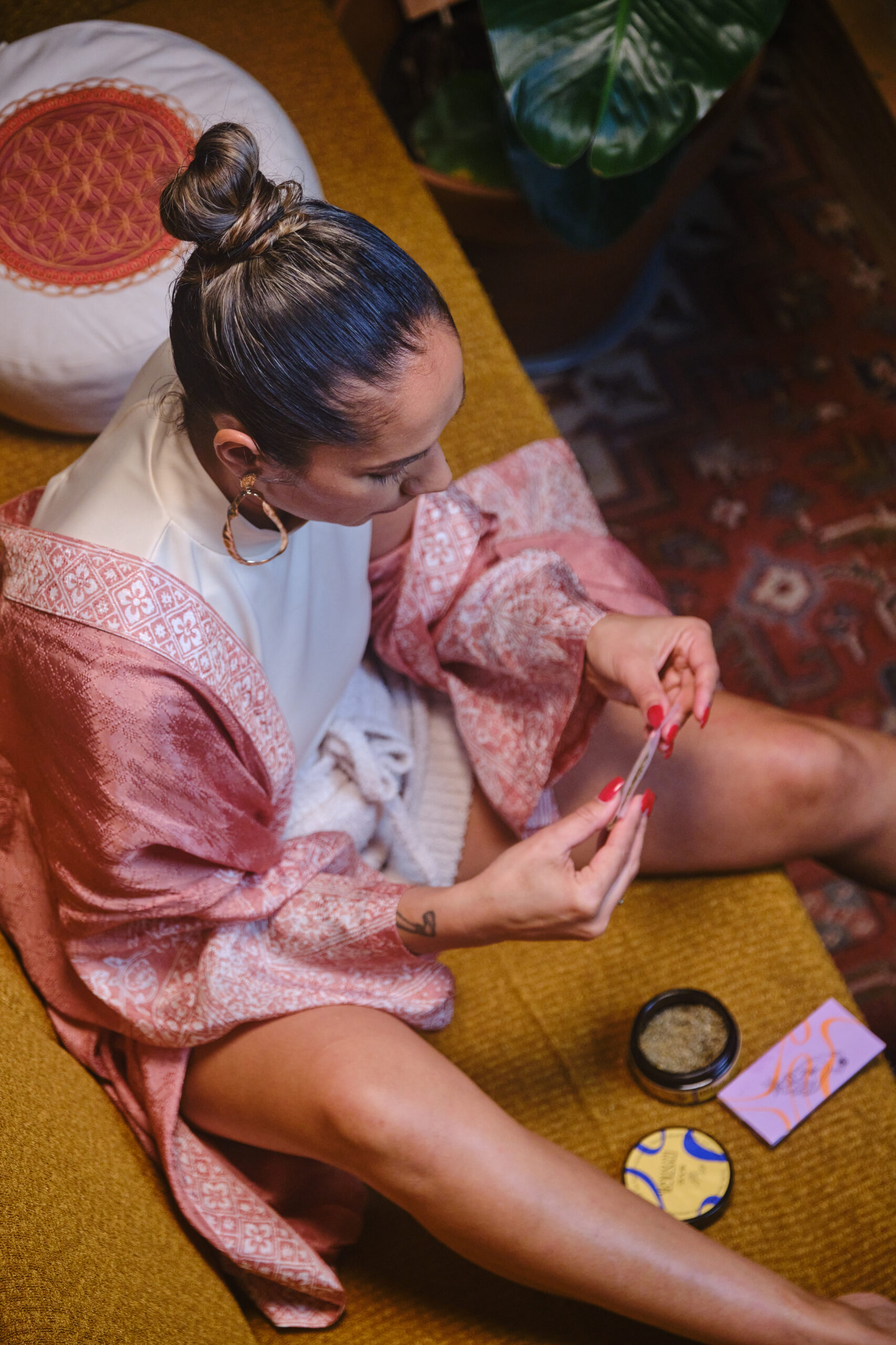
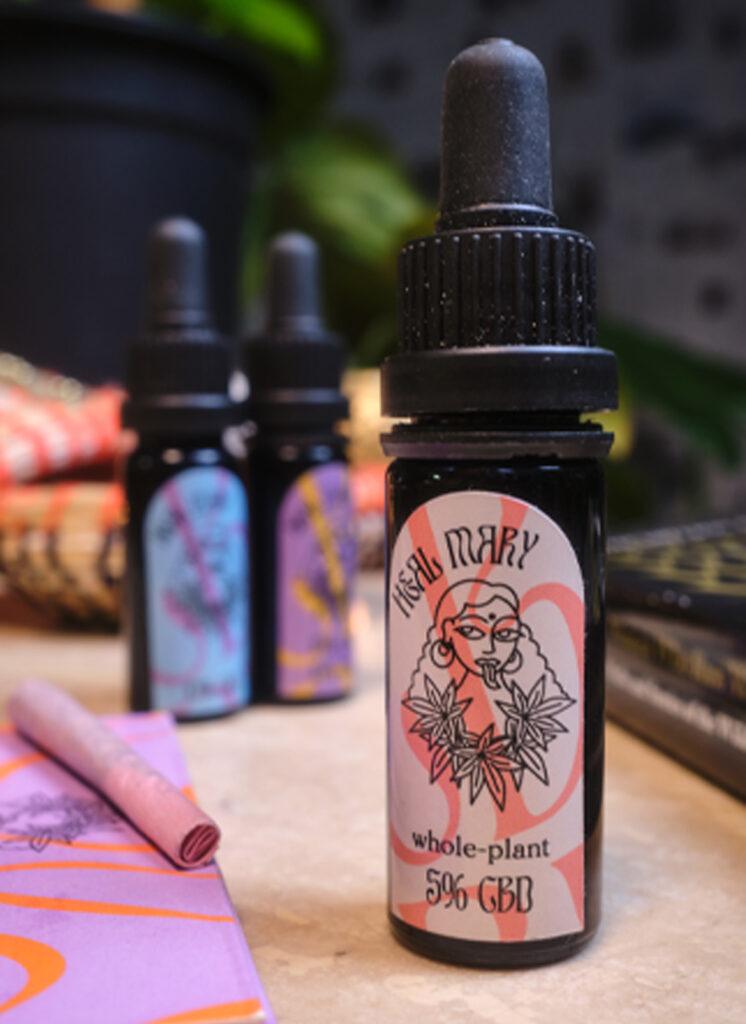
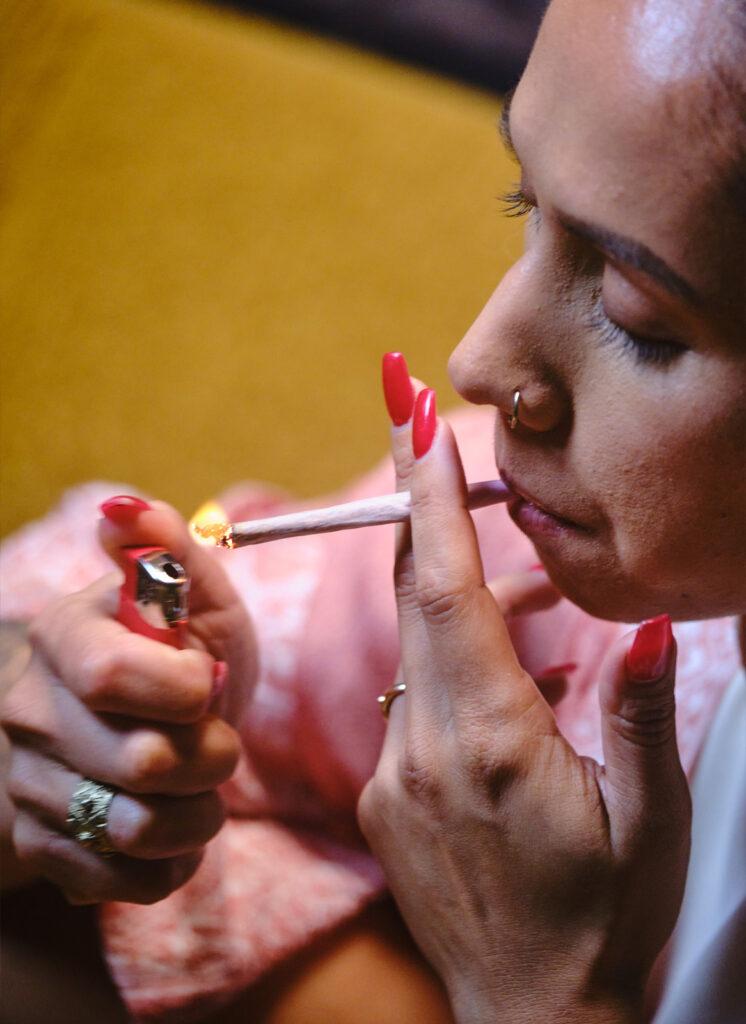
It’s safe to say weed for women is your specialty. What effects does cannabis have on women in particular and why is that?
An in-depth study discovered that humans have an endocannabinoid system (ECS). Apparently, it’s the biggest system in our body controlling our cognitive, central nervous and immune systems and far more. What’s fascinating is how the cannabinoids in our bodies are similar to the cannabinoids produced by the cannabis plant such as CBD, THC, CBG, CBN… It explains why our own endocannabinoid system works naturally well with cannabinoids extracted from the cannabis plant. Cannabinoids from cannabis don’t function as a stimulant or suppressor like other medicines; they function as a harmoniser.
What makes this especially interesting for women is that most ECS receptors can be found in the reproductive area of the women’s body around the womb, the vulva and in our vaginas. It inspired me to focus on this narrative with Heal Mary and create products especially for people with a womb. For example, ‘Peach ‘n Love’ is a 100% natural, CBD oil-based pleasure and relief lube, which you can use during sex or as a calming oil to ease labour, vaginal complaints and menstruation pain. It’s also a massage oil.
There are lots of interesting connotations on how cannabis enhances sexual pleasure and can improve the labour experience for women. I think that’s amazing and every woman should have access to this information and these types of products.
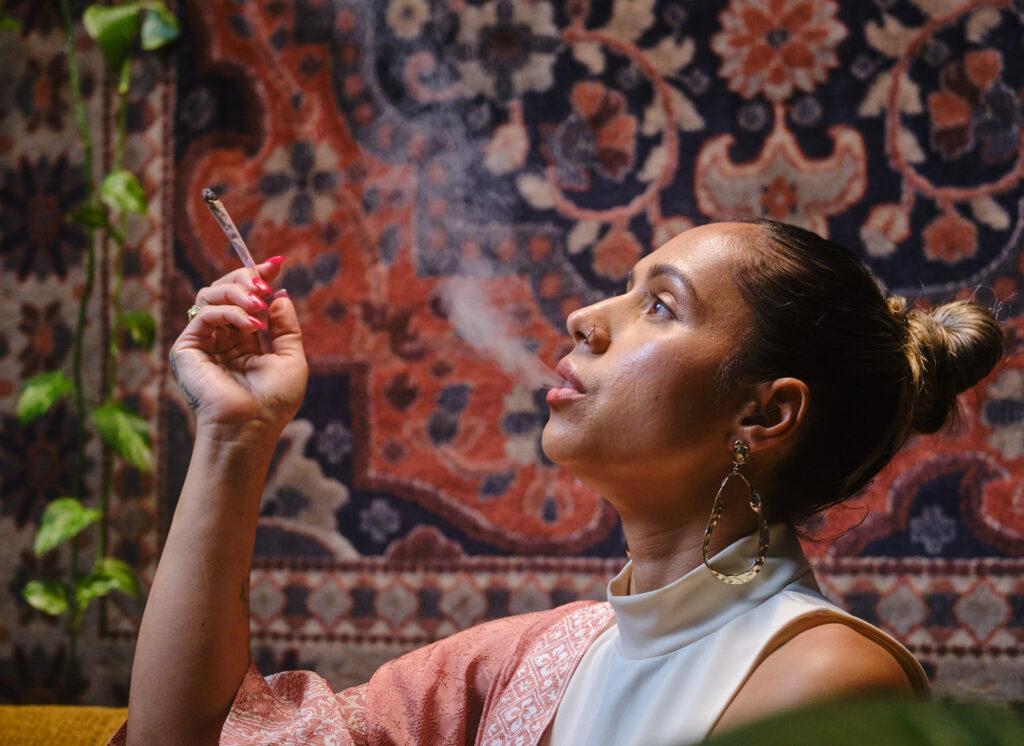
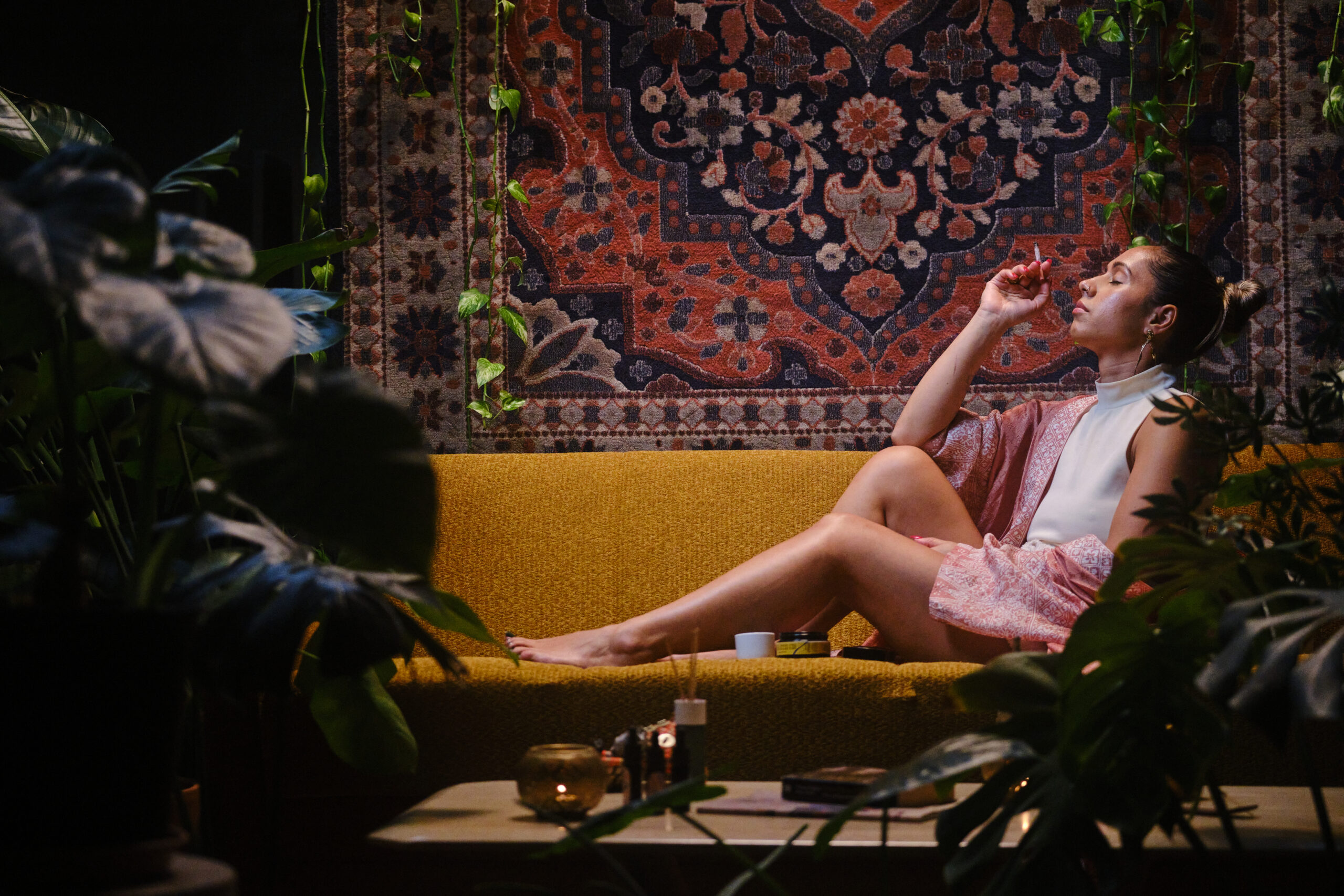
You often share compelling insights about cannabis, natural healing and pleasure for women. What role has CBD and cannabis played in your personal life since you got pregnant and now being a mother?
CBD, cannabis and plant medicine in general play a large role in my life, and it also ties in with my roots. My mother is Indonesian; her great-grandfather was a Kejawen meditator. Kejawen is a Javanese philosophy with practices and traditional plant medicine to stay balanced mentally and physically. I feel deeply connected to this philosophy which preaches natural and preventative healing and so does cannabis.
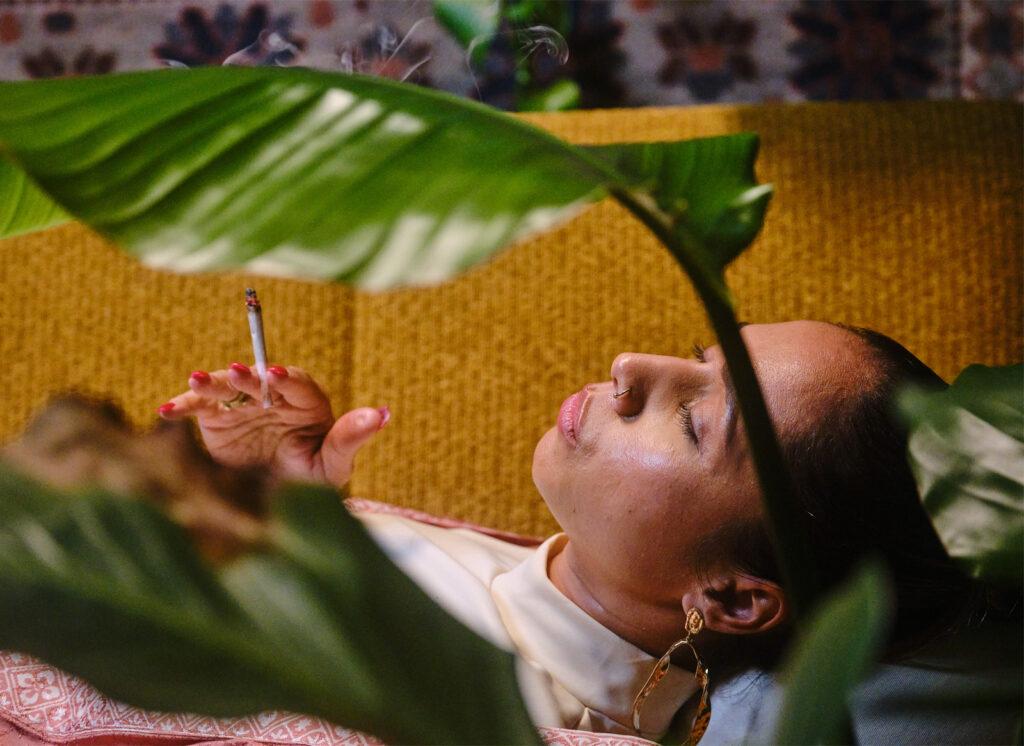
The first time I got pregnant, I had a regular midwife and shared I was microdosing cannabis before pregnancy. Cannabis usage is apparently a red flag for midwives. That’s so out of place. The response towards alcohol is very mild in comparison to cannabis and it contributes to a stigma that’s truly misguided. Therefore, with my second pregnancy, I searched for a holistic midwife. I told her that I’d be using CBD during pregnancy and labour. She was very open to it and said “it’s a supplement; as long as you’re not using THC, you’re all good.”
During the second trimester I started using CBD drops. It calmed me down, lowered my stress levels and led to minimal physical complaints. I also used the ‘Peach ‘n Love’ lube during pregnancy for relief and during labour as a muscle relaxer. While in labour, I vaped CBD weed (without THC). Both labours were gentle, except this time I had a surprisingly smaller amount of blood loss and minimal pain. Whether it was due to the CBD or vaporising, the midwife wasn’t sure. But it certainly did something good for me.
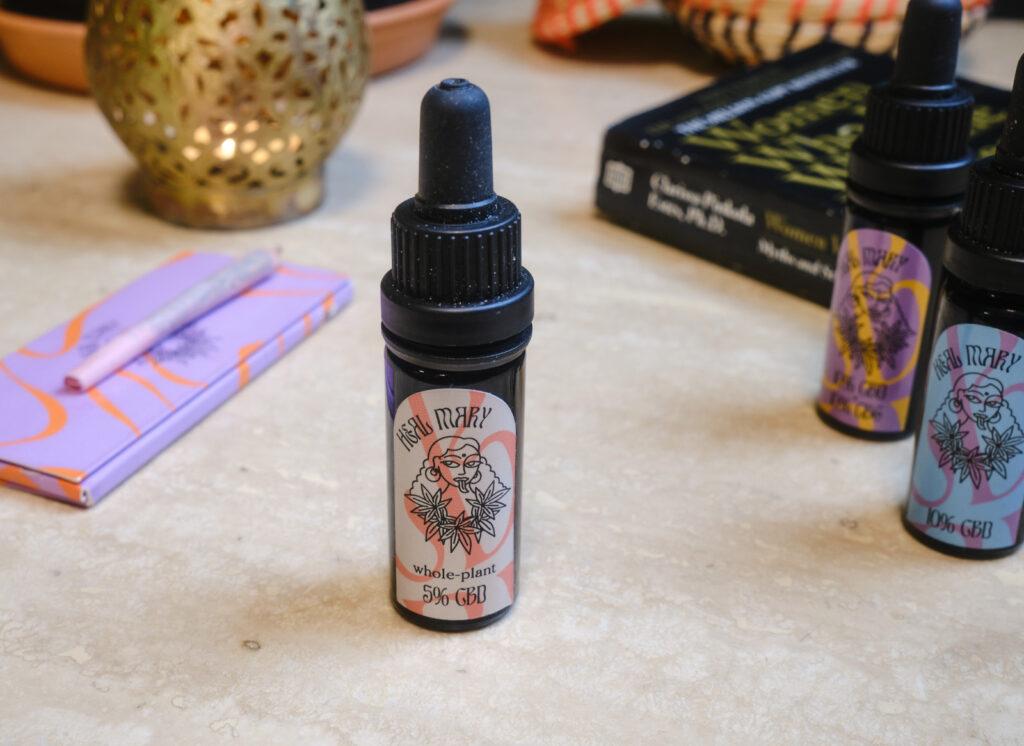
Would you say that it is a requirement to embody a rebellious spirit to succeed in introducing cannabis and other plant medicine culture into the modern world?
Big YES. Especially as a person of colour, we’ve always had to find our own ways through a system that wasn’t built for us. I always had a rebellious spirit, a bit of that *bleep-the-system* mentality. In general, I believe a lot of us naturally have that spirit.
A woman who inspires me immensely in this is Dr Michele Ross, a neuroscientist from the USA. She specialises and educates on cannabis and psychedelics in the context of motherhood and women’s health. I’m actually enrolled in her course, ‘Cannabis and Motherhood Certification’. It’s truly jaw-dropping. At the moment I’m learning about the interaction between CBD and the placenta. It’s changing everything for me personally and as an entrepreneur in this field. Dr Ross’ studies allow me to back up the statements and beliefs I’ve had for years.
Lots of research online is basic and contrary. It’s challenging especially since I’m not a biologist. That’s an important disclaimer. I don’t have a medical background. I’m looking at this topic through the lens of a journalist. My aim is to be objective which also means sometimes revisiting earlier statements. That’s difficult, yet exciting. We’re still all learning about cannabis and its global role in human health.
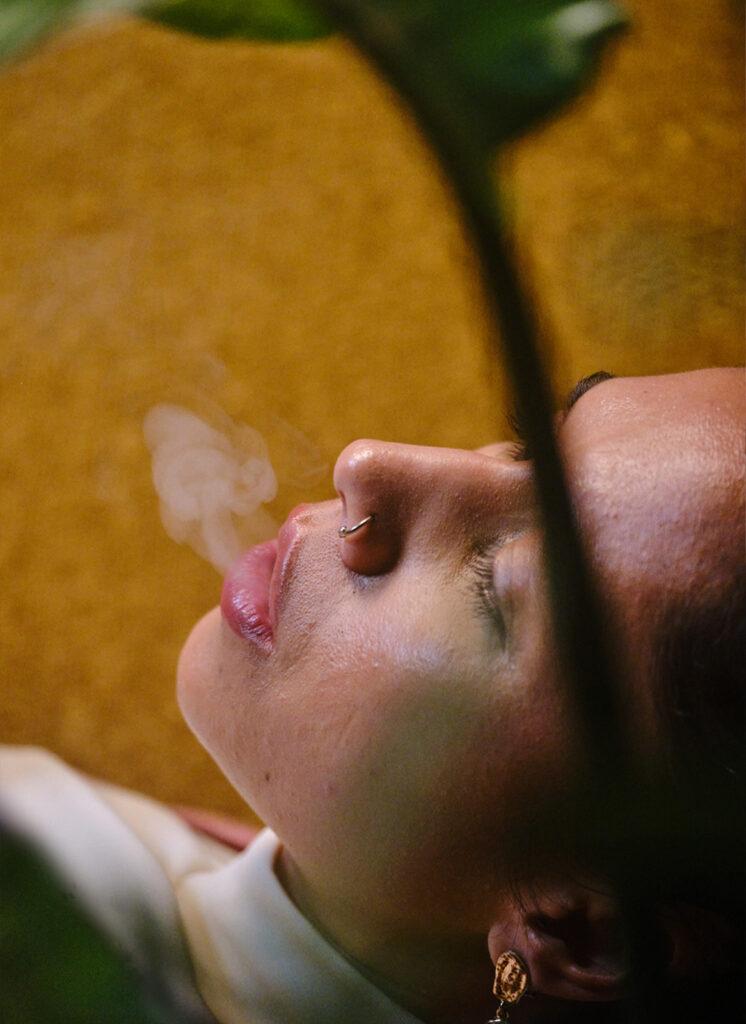
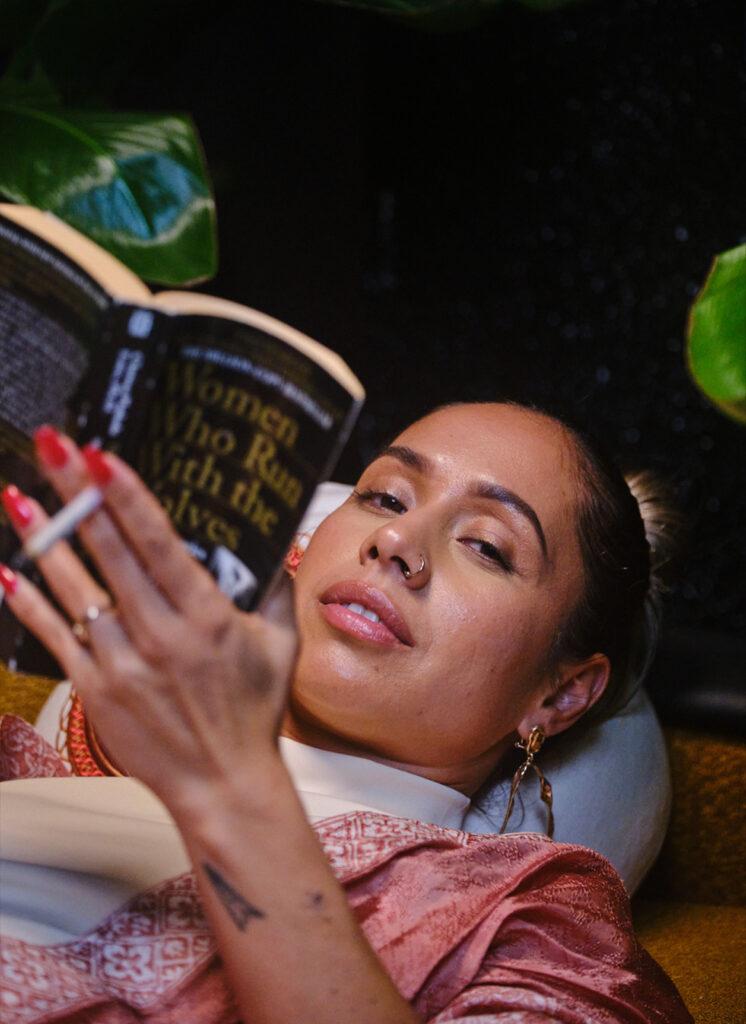
What is one myth or misconception about cannabis that you want to dispel once and for all?
That cannabis is our enemy – because it’s not. Mary Jane can be a great ally but you have to know how to use and work with it instead of letting cannabis consume you. There’s an interesting quote that goes: “There’s a strain* for every complaint.” A strain is a type of cannabis. While indica strains are couch lockers, body relaxers and great pain killers, they’re not ideal for socialising. Sativa strains generally stimulate creativity and compassion. The latter makes you open up, let your guard down and easily connect with people. It’s important to know about this when exploring the use of cannabis.
Another misconception I’d like to banish is about BIPOC communities in relation to cannabis. The war on drugs was globally based on racial profiling. Our community, in the Netherlands too, has been punished harder for drug use than any other. The stigma around members of historically excluded communities influences our access to jobs, education, finances and even health care. This has to stop and should be repaired.
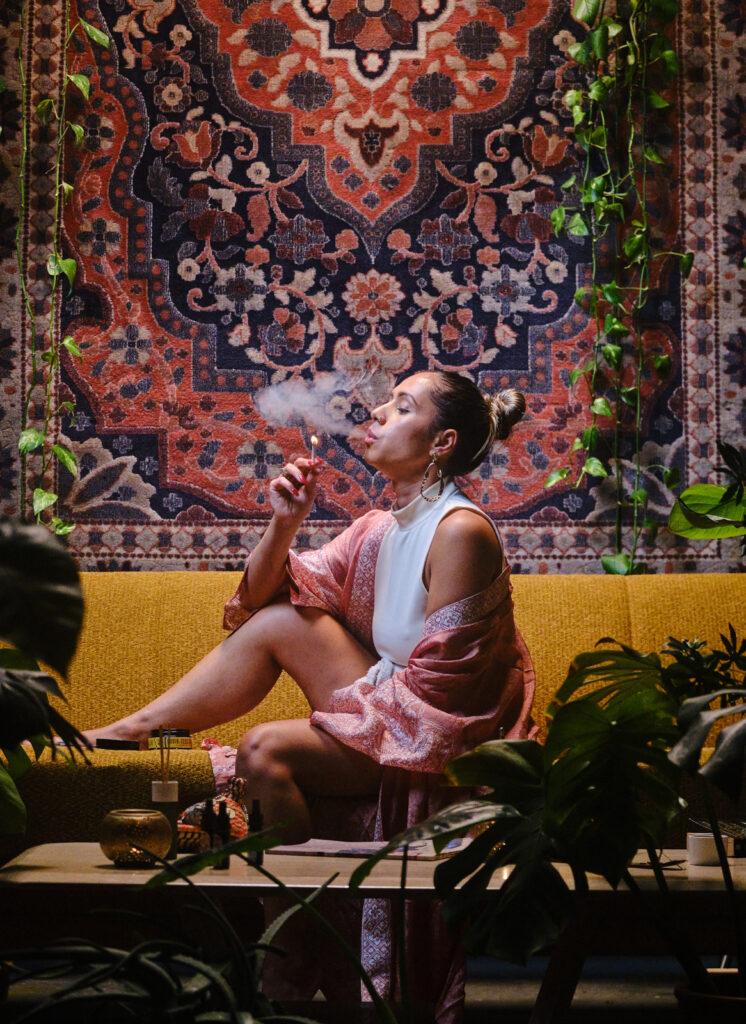
Lastly, if you could paint us a picture: What is your wish for the future of plant medicine and cannabis?
I hope it will be an accepted tool in everyone’s healing journey. That we’ll all develop our own kits with healing and self-care tools and that plant medicine is part of that. I hope someday this is all normalised and I work hard to play my part in this.
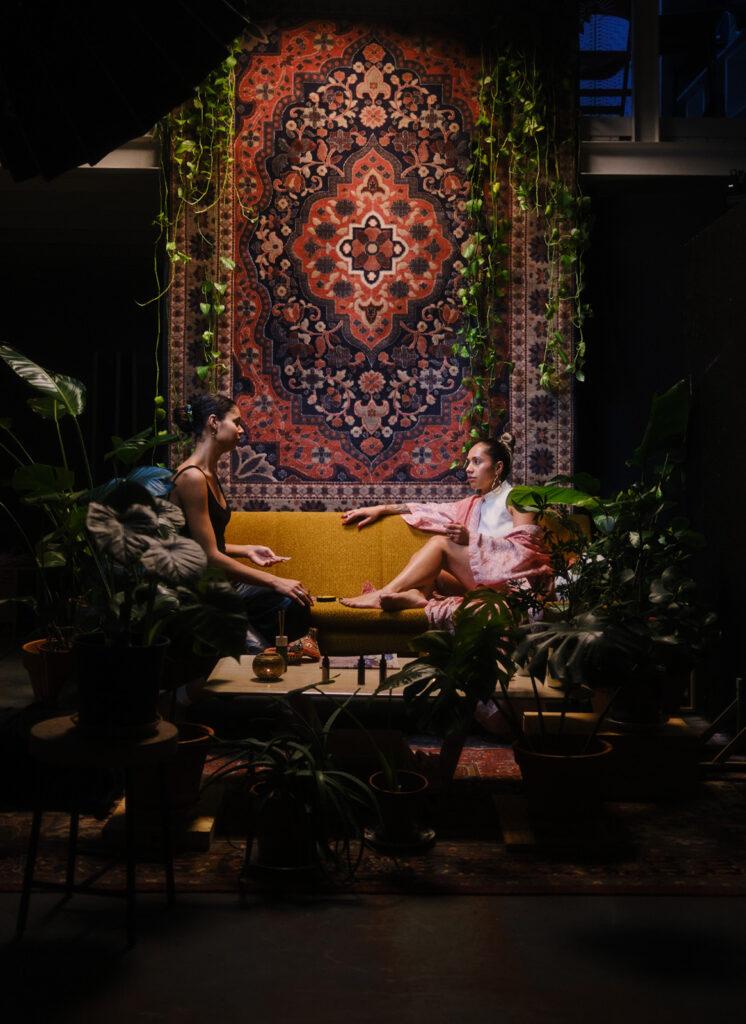
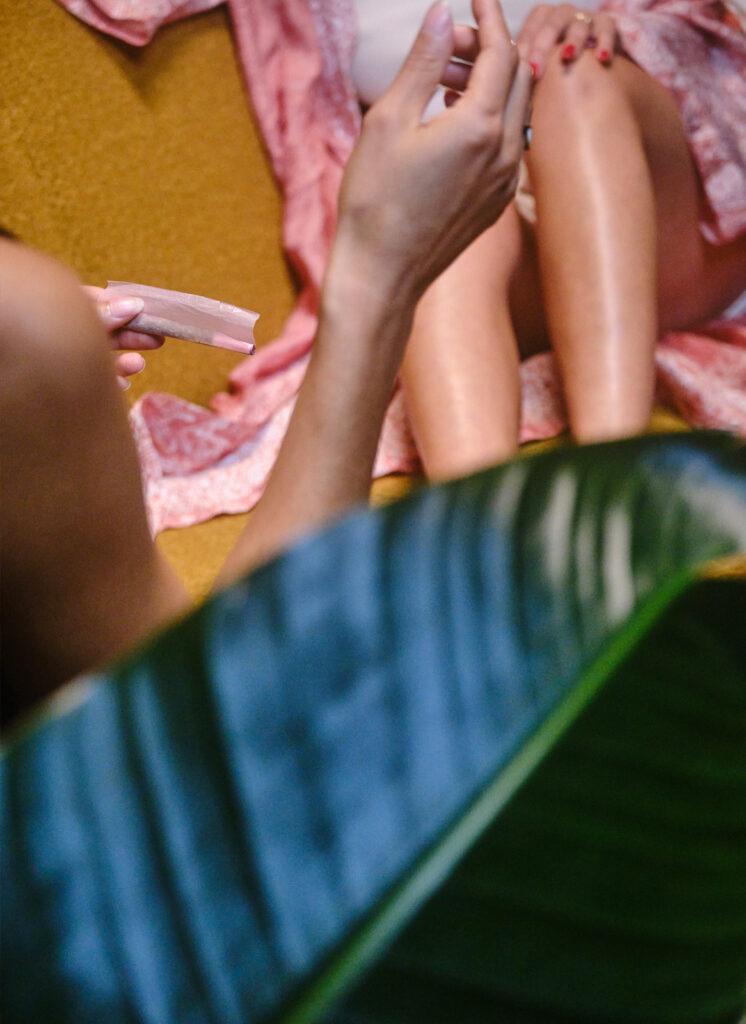
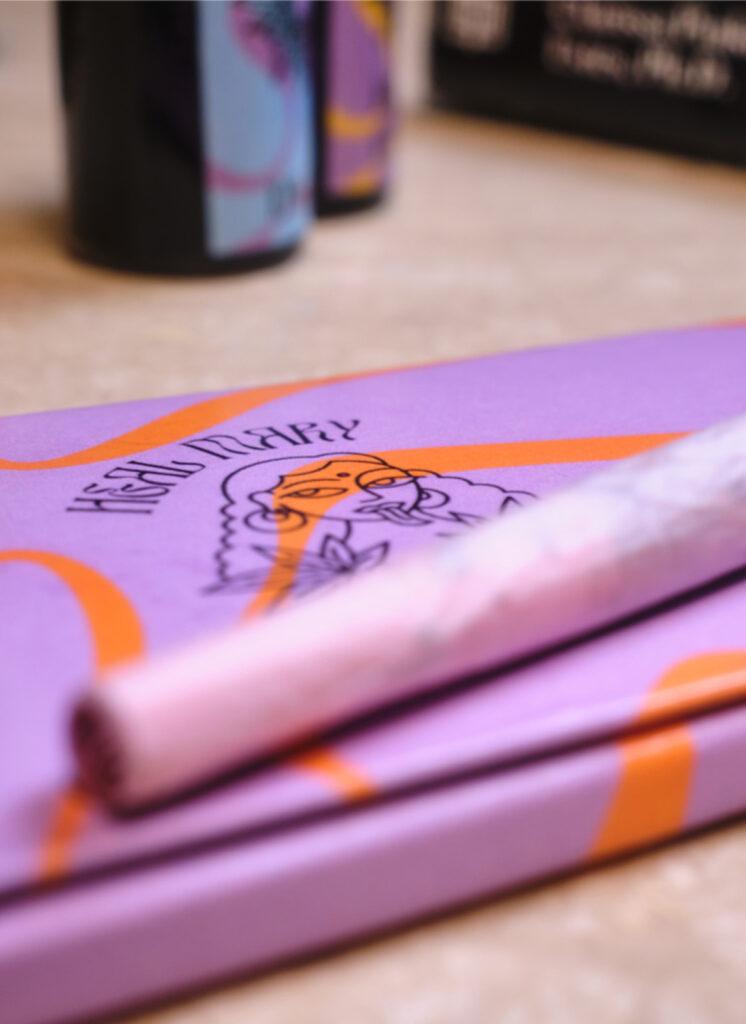
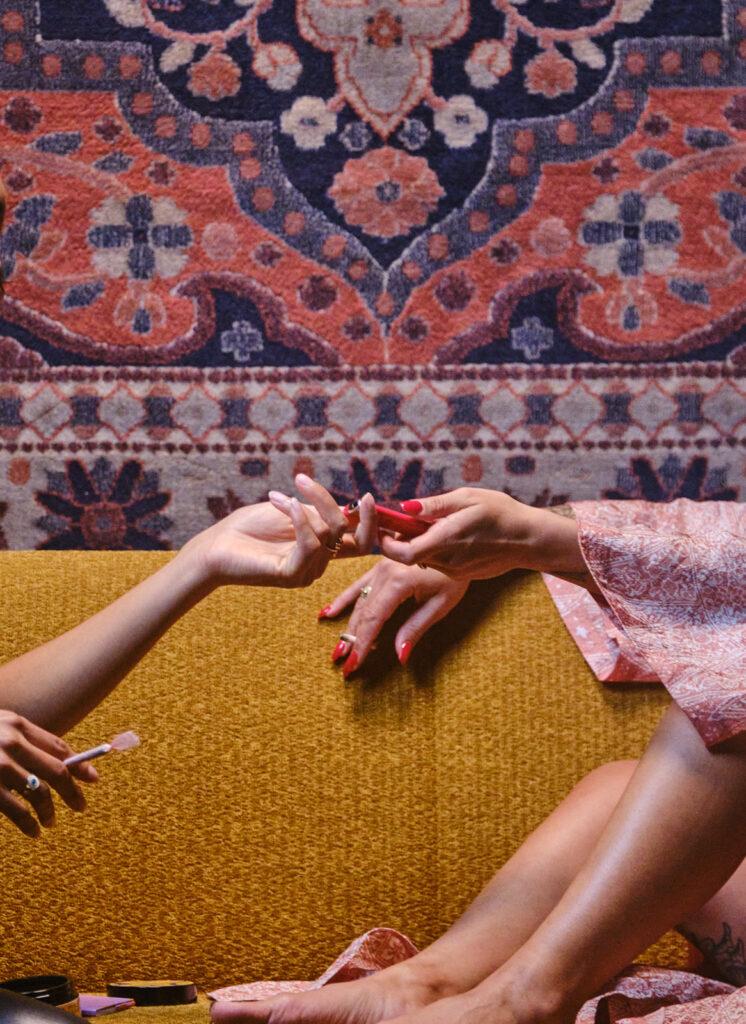
Heal Mary is a Dutch, woman-owned small business from the Netherlands, available online at www.healmary.nl.
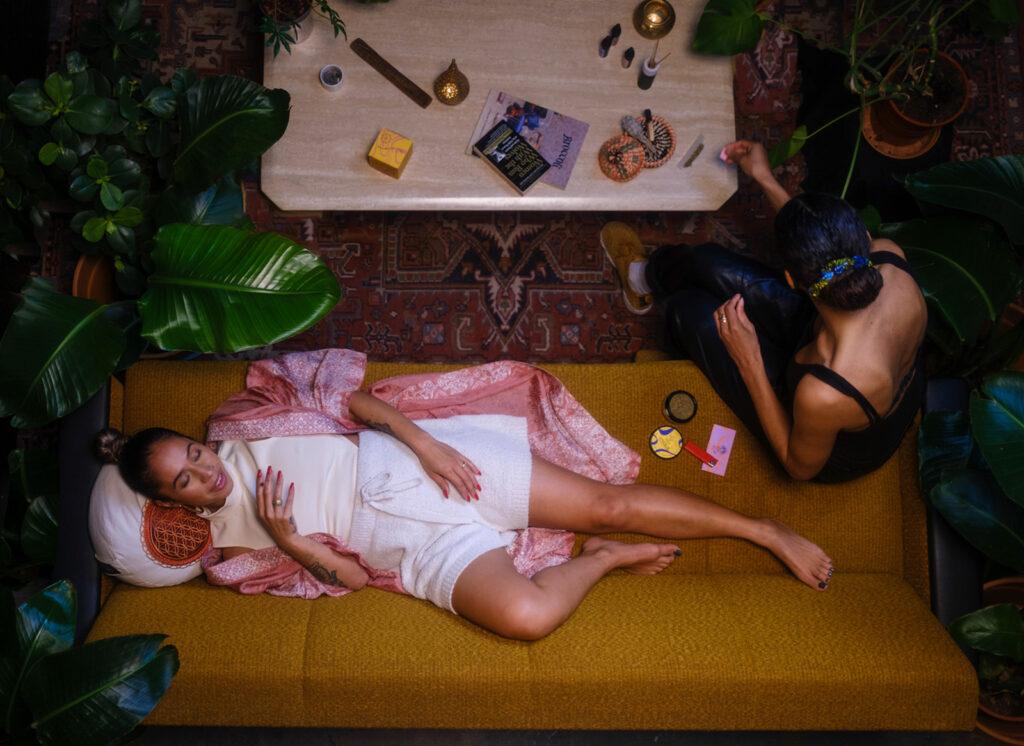
Follow Shinta Lempers: @shintalempers
Follow Jo-Ann Dawson: @ms.daw.son
Follow Heal Mary: @healmary

